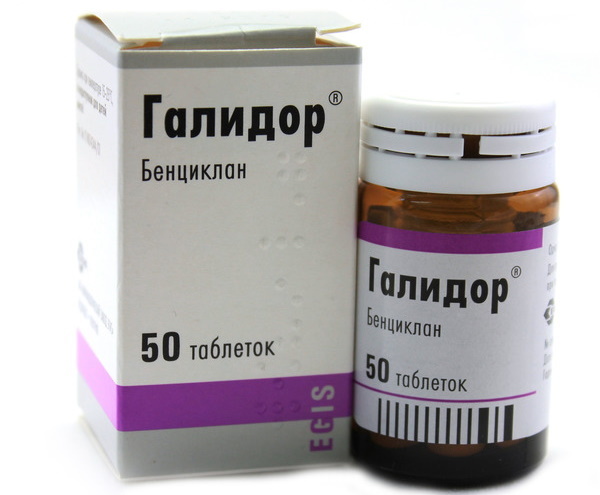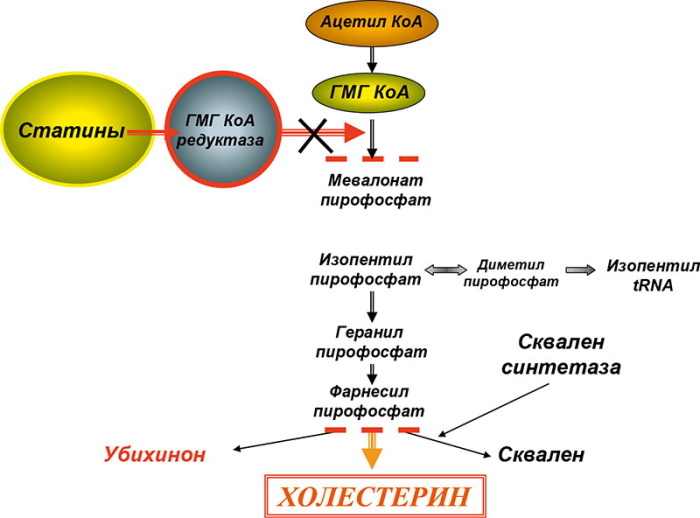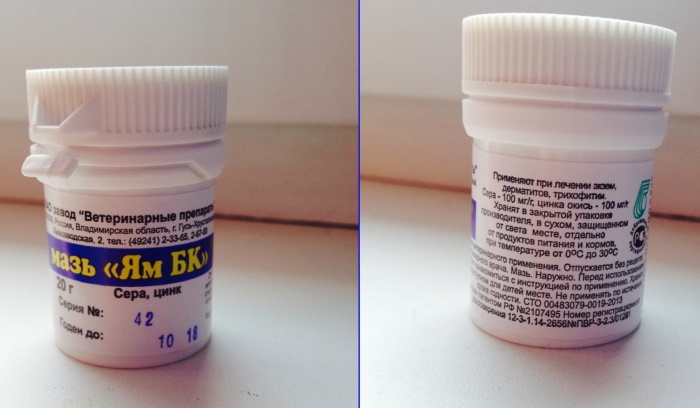Are acute glomerulonephritis, fleeting form of the disease, and chronic glomerulonephritis. The acute form of the disease may be caused most frequently transferred earlier streptococcal infection - poststreptococcal glomerulonephritis. Etiology distinguish primary and secondary glomerulonephritis, which occur in systemic diseases - systemic lupus erythematosus, rheumatoid arthritis, periarteritis nodosa and others.

What it is?
Glomerulonephritis - a kidney disease, characterized by lesions of the glomeruli (kidney glomeruli). This condition can be represented by isolated hematuria and / or proteinuria; or nephritic syndrome, acute renal failure or chronic renal insufficiency.
Causes of
By the development of glomerulonephritis may result in acute and chronic infectious processes provoked by pathogenic streptococci and other microorganisms. These include:
- streptoderma;
- scarlet fever;
- chicken pox;
- angina;
- tonsillitis;
- pneumonia;
- measles;
- acute respiratory viral infections.
Also causes provoking the development of glomerulonephritis, be undercooling and moisture which lead to circulatory problems. Major infectious pathogens triggers the development of glomerulonephritis are:
- neisseria;
- Toxoplasma;
- streptococcus;
- Staphylococcus aureus;
- viruses.
Most often, the development of glomerulonephritis occurs a few days after infection. The main causative agent - beta-hemolytic streptococcus group A.
Classification
Classification of glomerulonephritis is diverse, there are several principles of separation. By way flow secrete such types of glomerulonephritis:
- Acute - manifested in the first abnormalities of the renal glomeruli, occurrence of the disease is spontaneous. Amenable to rapid treatment, although in severe cases become chronic.
- Chronic - prolonged cyclic form of acute glomerular nephritis.
- Subacute - known as malignant (rapidly progressive). Treat glomerulonephritis such form is difficult because the strep virus not respond well to drugs. In this case, the complications of glomerulonephritis are often observed, such as uremia, renal failure in a chronic form, which may jeopardize the patient's life.
Clinical forms of chronic glomerulonephritis are:
| Nephrotic | is characterized by severe swelling, the pressure in this case, is likely to be normal. |
| hematuric | Clinic manifested in the presence of blood clots in the urine, increasing the concentration of proteinaceous compounds when depositing biochemical analysis. There is swelling, but it is small and discreet. In the later stages hypertension appears. |
| mixed | causes must be considered together, it is difficult to determine the main feature. |
| Latent | in such a diffuse glomerulonephritis patient does not feel the variations in health. The presence of small swelling and light pressure fluctuations. There appears oliguria - reducing the volume of output of body fluids. Kidney disease can identify the passage of laboratory studies. |
| hypertensive | manifested by high blood pressure. Thus urination change their regularity, and in urine study appears increase the amount of protein and the amount of bleeding present. |
Classification of chronic glomerulonephritis:
- Primary - is considered as a separate kidney disease.
- Secondary - the disease was the result of other abnormalities in the patient's health. For example, arthritis, periarthritis nodosa, systemic lupus and others. Challenge focal segmental glomerulonephritis rheumatoid various pathologies may immunity affected systemically.
A separate item is considered mesangioproliferative glomerulonephritis acute nature, which caused allergic streptococcus.

symptoms of glomerulonephritis
Depending on the various forms of glomerular lesions may predominate or that the symptoms of glomerulonephritis.
- Blood in the urine - urine color "meat slops";
- Facial edema (especially c), and the feet and legs;
- High blood pressure;
- Reducing the amount of urine, thirst;
- Increase in body temperature (rare);
- Lack of appetite, nausea, vomiting, headache, weakness;
- Weight gain;
- Dyspnea.
Acute glomerulonephritis develops after 6-12 days after a previous infection, usually strep (sore throat, tonsillitis, scarlet fever), including the skin (pyoderma, impetigo).
The disease can develop after other infections - bacterial, viral, parasitic and other antigens after effects - serum, vaccines and medicines.
In the classical cyclic during acute glomerulonephritis characterized by changes in urine (red urine due to blood impurities), edema, a decrease in urine output.
complications
The following complications can occur in acute diffuse glomerulonephritis:
- Acute heart failure (less than 3% of cases);
- Acute renal failure (1% of patients);
- Acute renal hypertensive encephalopathy (preeclampsia, eclampsia);
- Bleeding in the brain;
- Severe visual impairment (blindness passing);
- The transition into chronic diffuse glomerulonephritis.
One of the factors of chronic inflammation in the kidney may be the so-called hypoplastic kidney dysplasia, ie lag in the development of renal tissue from the chronological the child's age.
When progressiruyuscheem flow, unresponsive to active immunosuppressive therapy, chronic diffuse glomerulonephritis enters its final stage - secondary contracted kidney.
Diagnostics
Glomerulonephritis diagnosis is made on the results of studies to assess the extent and severity of impairment of renal function and identify the level of activity of the process.
The presence of the disease indicate:
- The presence of leukocytosis, accelerated blood sedimentation rate in the general analysis of blood.
- In the biochemical blood analysis study increasing residual nitrogen and urea, increased creatinine and cholesterol-lowering proteins albumin.
- Imbalance of acids and alkalis in the blood.
- Mild proteinuria (protein albumin excretion in the urine) for up to two to three weeks.
- Detection by microscopy urinary sediment of specific cylinders, indicating glomerular damage.
- Hematuria - blood in the urine (urine dirty color "meat slops", dark brown or black, while the color of microscopic hematuria - no change).
- Reduced diuresis, nocturia (the increase of urine at night) when Zimnitsky sample.
Sometimes assigned a kidney biopsy for subsequent morphological study of bi-optic material.

treatment of glomerulonephritis
The symptoms and treatment of glomerulonephritis closely linked. Therapy of acute and chronic forms of the disease in the acute phase, performed only in Nephrology or therapeutic hospital department. Ill recommend bed rest, and of nutritional therapy is indicated for glomerulonephritis renal diet №7.
Treatment of chronic forms of glomerulonephritis:
- Bracing means.
- Anti-inflammatory drugs (NSAIDs, corticosteroids).
- Anticoagulants (to reduce the viscosity of the blood and to prevent thrombus formation).
- Regular dialysis with severe renal insufficiency.
- Kidney transplantation after failure of conservative therapy of chronic glomerulonephritis (not further eliminates autoimmune destruction).
Treatment of acute forms of glomerulonephritis:
- Strict bed rest.
- Antibacterial, antiviral treatment (at the infectious nature of the disease).
- Symptomatic means (diuretics, antihypertensives, antihistamines).
- Immunosuppressive therapy (cytostatics).
- Dialysis - connection to an artificial kidney machine (with the rapid development of renal failure).
Diet during acute glomerulonephritis
In the fight against this pathology it is very important to adhere to a special diet. Patients recommended to minimize the amount of fluid intake and salt and protein. During the day, the patient can eat no more than two grams of salt. Of food, which include protein, should give their preference to egg whites and cottage cheese. As for fat, they can eat in a day not more than fifty grams.
Normal daily amount of liquid in this case is considered to be six hundred - a thousand milliliters. Such patients is strictly forbidden to eat meat soups. In most cases, the correct and timely therapy provides an opportunity not only to heal the sick, but also to fully restore the work of his kidneys.
Folk remedies
Here are a few effective tools to help quickly restore kidney function:
- Take one tablespoon of dried elderberry flowers, pour a glass of boiling water until cool. Take the medicine should be 1/3 cup three times a day before meals. Duration of infusion of elder flowers - 3-4 weeks, until complete healing.
- Healing collection of edema. Mix flaxseed (4 parts) with dry birch leaves (3 parts) and restharrow root field (the same). Pour boiling water and let it stand for a couple of hours. Then strain and drink into a third cup three times a day. And so - a week. After this time, you will forget about the swelling, get rid of the pressure and heart pain.
- Mix 1 teaspoon corn silk, and the same tails from cherries, pour 500 ml of boiling water and leave to infuse until cure has cooled to room temperature. Take tincture of need ¼ cup three times a day for half an hour before meals. Treatment should be continued as long as the symptoms disappear glomerulonephritis.
To boost the immune system and help the body to quickly deal with the pathological process, you need every day for tea spoon to take the following medication: a cup of honey, a tablespoon of walnuts, hazelnuts tablespoon peel one lemon. All mix and store in a warm place.

prevention
Proper treatment of streptococcal diseases, adherence to the calendar of preventive vaccinations and sanitation of foci of infection in the body is the main preventive measures. Children who experience post-streptococcal glomerulonephritis, should be under medical observation for 5 years after treatment.
Preventive medical examinations and laboratory tests allow the early detection of disease and avoid complications. Self-treatment, neglect of the common symptoms often leads to severe forms of the disease.
Forecast
Favorable, subject to all therapeutic measures. In some cases there can be serious complications, resulting in renal failure and requiring urgent action. For their prevention should follow the prescribed treatment, and control the dynamics of laboratory parameters. It is also necessary to prevent hypothermia and other etiological factors that can cause deterioration.



